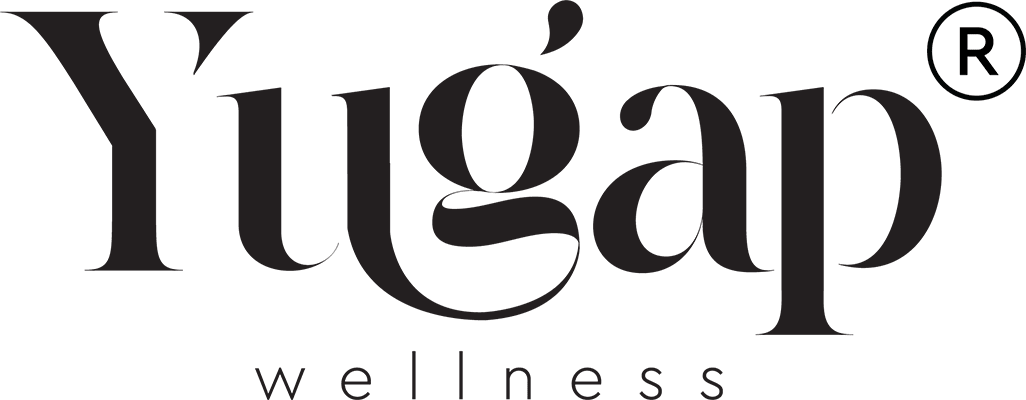
Women's Health: How Nutrition and Lifestyle Contribute to Wellness
Women's health requires more than basic nutritional balance alongside fitness routines. The path to true wellness requires recognition of how diet and daily activities combine to support female hormonal wellness alongside brain awareness, brainpower, and sustained energy production. The following blog examines women's paths to peak wellness through carefully selected diets along with exercise routines and stress control methods alongside lifestyle changes.
What is women's wellness and why does it matter?
The comprehensive concept of women’s wellness comprises physical elements together with emotional aspects as well as mental elements and hormonal maintenance. Every element of wellness forms a connection to other wellness elements and creates a two-way effect between them. Nutrition for women’s hormonal health performs an essential function since it determines their mood stability together with reproductive health state and energy production and overall well-being. To achieve optimal wellness a person needs more than nutritional support only.
A combination of key lifestyle habits, exercise, and stress management is crucial for building a strong foundation for lifelong health.
How hormones affect women’s health
The female hormonal balance changes in four distinct phases in women's lives starting from puberty through menstruation and extending to pregnancy and later reaching menopause. These hormonal shifts can influence many aspects of health, such as metabolism, mood, energy levels, and immune function. Your body will operate at its peak throughout your life by selecting nutrient-rich foods for hormone balance together with exercise plans and stress reduction practices and overall healthy behavior.
-
Thyroid imbalances
-
Premenstrual syndrome (PMS)
-
Menopausal symptoms
Best nutrition for women’s hormonal health
To maintain hormonal balance and boost energy and wellness, women need to fuel their bodies with the right nutrients. Key nutrients can support hormone production and regulation, especially as women age.
Key nutrients for hormonal health
-
Well-chosen fats possess two essential functions: first for hormone production along with the second aspect supporting the creation of estrogen and progesterone hormones.
-
The mineral magnesium controls stress hormone cortisol alongside additional stress hormones.
-
B vitamins, specifically B6 and B12 maintain optimal energy flow while stabilizing emotional states.
-
Vitamin D: Essential for immune function and mood regulation. The body can produce Vitamin D through solar exposure and can obtain it by consuming vitamin-fortified dairy, fish and eggs.
-
Fiber consumption helps digestion and binds to excess estrogen before assisting the body in estrogen removal.
Anti-inflammatory diet
When inflammation persists, it forms a condition that interferes with hormonal regulation. Implementing an anti-inflammatory diet acts as a preventive method against this danger. Various foods contains antioxidants found in turmeric and ginger and garlic and berries have proven ability to fight inflammation (Brody, 2023).
Healthy lifestyle habits
The bases for wellness preservation include maintaining proper hydration levels together with appropriate sleep duration and effective stress control methods.
Sleep
Sleep amounts equal to what your body needs are essential because they allow hormone management and body recharge and mental clarity. Women between childbearing ages require 7-9 hours of sleep during nighttime to preserve hormonal equilibrium. Higher cortisol levels along with poor sleep trigger weight gain and escalate the risk of developing heart disease and diabetes and MODIFY metabolism adversely (How Women Can Get Better Sleep, n.d.).
Exercise and nutrition in maintaining women's wellness
Exercise as well as proper nutrition reflects the essential components for women's health stability and wellness. Well-organized physical activity sessions deliver beneficial outcomes to hormonal health as well as weight management and improve general health status (Leal, 2022).
Best exercises for women’s hormonal health
-
Strength training: Weight lifting and bodyweight exercises help regulate estrogen levels, boost metabolism, and build muscle mass, which decreases with age.
-
Yoga and pilates: These practices improve flexibility, reduce stress, and support emotional well-being, which directly benefits hormonal balance.
Stress management
The overproduction of cortisol occurs among the leading factors that cause hormonal imbalance—a consequence of stress. Enduring stress brings about weight increase together with anxiety and exhaustion while disrupting the menstrual period. The practice of stress management stands as an essential component for women’s wellness (Holmberg, 2024).
Conclusion
The medical requirements of women are diverse so achieving permanent wellness demands holistic consideration. Your body will operate at its peak throughout your life by selecting nutrient-rich foods for hormone balance together with exercise plans and stress reduction practices and overall healthy behavior. Apart from just diet, adding a well-researched supplement to your daily routine can work equal wonders. If you are looking for some supplement that is well researched and good for consumption, try our very own well-curated product, YuHer.
References
-
Brody, B. (2023, September 27). Anti-Inflammatory diet: Foods to eat and avoid. WebMD. https://www.webmd.com/diet/anti-inflammatory-diet-road-to-good-health
-
Holmberg, B., PhD. (2024, March 20). Women can have faster, longer, and larger stress responses than men. Psychology Today. https://www.psychologytoday.com/intl/blog/the-science-of-self/202403/men-and-women-experience-stress-differently
-
How women can get Better sleep. (n.d.). [Video]. WebMD. https://www.webmd.com/sleep-disorders/sleep-apnea/video/women-sleep-tips
-
Leal, D. (2022, April 20). How women can build muscle with diet and exercise. Verywell Fit. https://www.verywellfit.com/diet-mistakes-women-make-trying-to-gain-muscle-3121318
